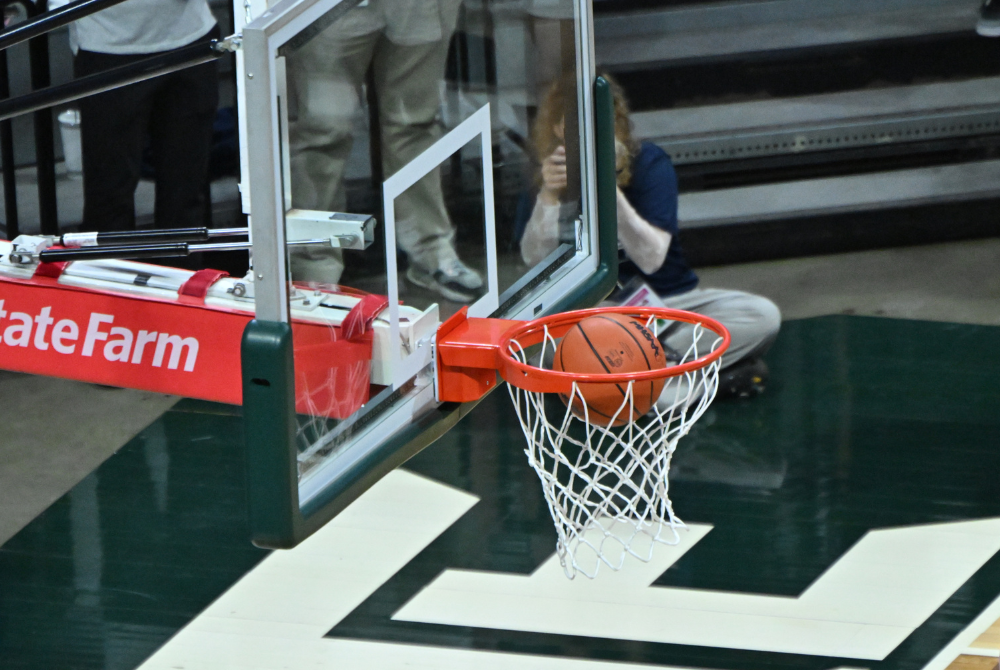
Be the Referee: Concussions
September 15, 2016
This week, MHSAA assistant director Mark Uyl discusses the official's role when an athlete experiences a possible concussion.
Be The Referee is a series of short messages designed to help educate people on the rules of different sports, to help them better understand the art of officiating, and to recruit officials.
Below is this week's segment – Concussions - Listen
In all contact sports, the biggest issue of the day continues to be concussions. Game officials play a vital role in keeping athletes safe on the field, court, ice and mat.
While officials are never placed in the position to diagnose a possible concussion, the officials can often see when a player first becomes injured. When that possible injury is noticed by an official, all game rules require the contest be stopped and the student is evaluated by the school’s health care team.
It then becomes the call of the school to determine if the player has suffered a possible concussion. If yes, the player is out for at least the rest of that day. If no, the player can return to the contest.
Past editions
Sept 8: Equipment Covering the Knees - Listen
Sept. 1: Play Clock Experiment - Listen
Aug. 25: Clipping in the Free Blocking Zone - Listen

Be the Referee: Faking Being Fouled
By
Paige Winne
MHSAA Marketing & Social Media Coordinator
February 10, 2026
Be The Referee is a series of short messages designed to help educate people on the rules of different sports, to help them better understand the art of officiating, and to recruit officials.
Below is this week's segment – Faking Being Fouled - Listen
In the second quarter, a basketball player drives into the lane and snaps their head backward to simulate contact from a defender — but no contact occurs. The lead official immediately recognizes the “head bob,” sounds the whistle, and issues a team warning for faking being fouled. The offense keeps the ball for a throw-in at the spot nearest the infraction.
Later in the game, the same player attempts a jump shot and falls backward after releasing the ball to again simulate contact. The official stops play. The shot is successful, so the basket counts. However, because the same team already received a warning, a team technical foul is assessed. The defense is awarded two free throws and possession at the division line opposite the table.
Previous 2025-26 editions
Feb. 3: Bowling Pins - Listen
Jan. 27: Ski Gates - Listen
Jan. 20: Cheer Judges - Listen
Jan. 13: Basketball Over the Back - Listen
Jan. 6: Bowling Ball Bounces Out of Gutter - Listen
Dec. 9: Puck on Goal Netting - Listen
Dec. 2: Goaltending vs. Basket Interference - Listen
Nov. 25: Football Finals Instant Replay - Listen
Nov. 18: Volleyball Libero Uniforms - Listen
Nov. 11: Illegal Substitution/Participation - Listen
Nov. 4: Losing a Shoe - Listen
Oct. 28: Unusual Soccer Goals - Listen
Oct. 21: Field Hockey Penalty Stroke - Listen
Oct. 14: Tennis Double Hit - Listen
Oct. 7: Safety in Football - Listen
Sept. 30: Field Hockey Substitution - Listen
Sept 23: Multiple Contacts in Volleyball - Listen
Sept. 16: Soccer Penalty Kick - Listen
Sept. 9: Forward Fumble - Listen
Sept. 2: Field Hockey Basics - Listen
Aug. 26: Golf Ball Bounces Out - Listen

